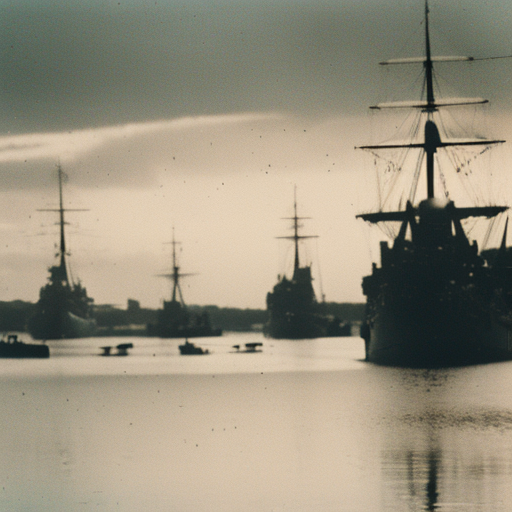Raid on the Medway: A Devastating Attack on the British Navy
The Raid on the Medway, also known as the Battle of Chatham, was a significant naval attack that took place during the Second Anglo-Dutch War in June 1667. Led by the Dutch Republic, the raid resulted in a devastating blow to the British Navy and a humiliating defeat for England.
The Background:
The Second Anglo-Dutch War began in 1665, fueled by tensions between the two maritime powers over trade routes and colonial territories. The Dutch Republic, under the leadership of Admiral Michiel de Ruyter, sought to assert its dominance over the English Channel and weaken the British Navy.
The Attack:
In June 1667, the Dutch launched a daring attack on the British fleet, which was anchored at Chatham on the River Medway. The Dutch fleet, consisting of around 60 ships, sailed up the river and encountered little resistance from the poorly defended British positions.
The Destruction of the British Fleet:
The Dutch fleet successfully navigated past the defensive chain and forts guarding the river, reaching the heart of the British naval base. They set fire to several ships, including the flagship HMS Royal Charles, and captured or destroyed numerous others. The British Navy was left in disarray, with many of its ships either sunk or captured.
The Humiliation of England:
The Raid on the Medway was a severe blow to England’s naval power and a source of great humiliation. The Dutch had not only inflicted significant damage on the British fleet but had also demonstrated their ability to penetrate deep into English territory. The attack exposed the weaknesses in England’s defenses and highlighted the need for significant reforms within the British Navy.
The Peace Treaty:
The devastating raid on the Medway played a crucial role in bringing the Second Anglo-Dutch War to an end. The English, realizing the extent of their defeat, were eager to negotiate a peace treaty. The Treaty of Breda was signed in July 1667, ending the war and restoring peace between England and the Dutch Republic.
The Legacy:
The Raid on the Medway had far-reaching consequences for both England and the Dutch Republic. It marked a turning point in naval warfare and highlighted the importance of effective coastal defenses. The British Navy underwent significant reforms in the aftermath of the raid, including the construction of stronger fortifications and the establishment of a permanent naval base at Sheerness.
The Raid on the Medway in Popular Culture:
The Raid on the Medway has been immortalized in various works of literature and art. It is often depicted as a symbol of Dutch naval supremacy and English humiliation. The event has been the subject of numerous historical novels, paintings, and even a play by the renowned British playwright, Sir Arthur Wing Pinero.
In conclusion, the Raid on the Medway was a devastating attack on the British Navy during the Second Anglo-Dutch War. The Dutch Republic, under the leadership of Admiral Michiel de Ruyter, successfully penetrated the British defenses and inflicted significant damage on the British fleet. The raid exposed the weaknesses in England’s naval defenses and led to significant reforms within the British Navy. The event played a crucial role in bringing the war to an end and has left a lasting legacy in popular culture.












